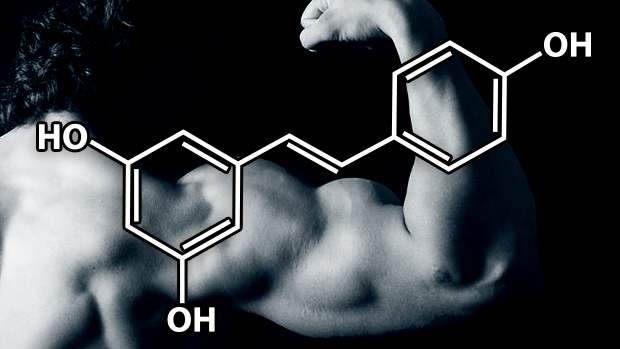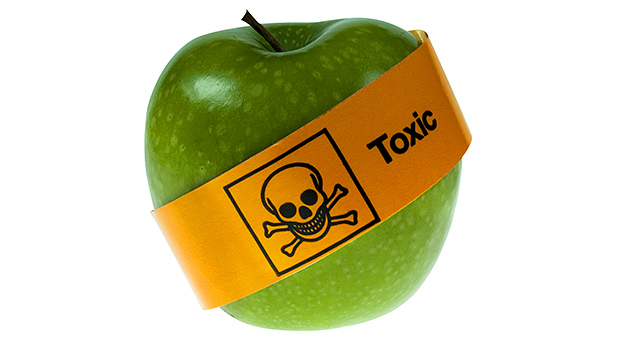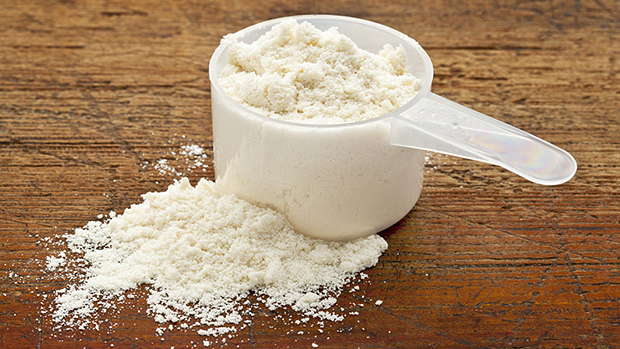Here's what you need to know...
- Resveratrol is known for possibly increasing life span, preventing cancer, and protecting against heart disease, Alzheimer's, and diabetes.
- Resveratrol is also a performance-enhancement supplement. It can act as an anti-inflammatory and may increase testosterone levels while also reducing estrogen.
- Recent research has shown that resveratrol lessens excess exercise-induced muscle damage and promotes muscle repair.
- Resveratrol may also increase basal skeletal muscle fat oxidation, suggesting a fat-burning effect.
A Longer, Leaner, More Muscular Life
Does the scientific evidence support the substantial hype of resveratrol supplementation? Let's take a closer look.
Resveratrol, a natural phenol commonly found in red wine and cocoa, is a potent anti-oxidant that aids in the removal of free radicals. Of course, everything that comes from a plant can pretty much make the same claim.
It's the other stuff that resveratrol can do that makes it so intriguing, things like possibly increasing life span, preventing cancer, and protecting against heart disease, Alzheimer's, and diabetes.
Beyond all that, resveratrol has recently found acclaim as a performance-enhancement supplement. It can act as an anti-inflammatory and may increase testosterone levels while also reducing estrogen.
Its ability to reduce inflammation and estrogen, while boosting T levels and promoting muscle repair, make it an excellent supplement for those looking to improve performance, body composition, and overall health.
The Testosterone/Estrogen Battle
Testosterone is the king of anabolic hormones. It promotes muscle growth, bone health, and improves your overall health and well-being.
Conversely, estrogen and estradiol increase body fat, reduce muscle mass and strength, and can turn even King Leonidas into a weak, pudgy, "mandropaused" middle-aged man.
Recently, resveratrol has been investigated for its ability to raise testosterone levels and reduce estrogen and estradiol. One study showed that it increased blood testosterone levels 51.6% in animals.
Equally intriguing are the studies showing resveratrol's inhibition of aromatase, thus reducing the conversion of testosterone to estrogen and increasing testosterone levels even further.
Based on this evidence, resveratrol may indeed be an effective way to improve testosterone levels. Granted, the effect wouldn't be nearly as powerful as that of steroids, but resveratrol might well grant a measureable increase in T levels and, consequently, performance.
Resveratrol and Inflammation
While there's some debate surrounding the exact role of inflammation in muscle growth, one thing is for certain – excessive inflammation results in muscle degradation, pain, and serious metabolic issues.
Managing inflammation and promoting a more anti-inflammatory environment is beneficial for recovery, health, and muscle growth.
Specific to its anti-inflammatory properties, resveratrol has been shown to reduce a major inflammatory pathway, Nf-KB. While this property makes resveratrol a potentially beneficial supplement for recovery purposes, some worried that long-term suppression of the inflammatory response may blunt muscle growth.
However, the mechanism through which resveratrol acts indicates it would be difficult for an individual to consume enough of it to blunt hypertrophic signaling in muscle.
In fact, recent research has shown that resveratrol lessens excess exercise-induced muscle damage and promotes muscle repair.
Resveratrol, Hypertrophy, and Body Composition
Based on the evidence, resveratrol does several things that may make it a great bodybuilding supplement. Resveratrol:
- Reduces inflammation.
- Promotes repair of exercise-induced muscle damage.
- Increases testosterone.
- Interferes with the conversion of testosterone to estradiol.
- Prevents muscle loss (catabolism).
- Increases basal metabolic rate by increasing basal skeletal-muscle fat oxidation – a potential "fat-burning" effect.
- May also increase performance as it's been shown to increase muscle force by increasing twitch and tetanic contraction in skeletal muscle.
Safety and Dosage
There's no evidence suggesting physiological doses of resveratrol to be harmful.
There's some speculation that resveratrol may interact with the prescription drug Coumadin. Individuals on blood thinners should consult a physician prior to using it.
The typical human dose for resveratrol is around 250 to 600 milligrams per day. And yes, it's safe for women too and will not cause you to fail a drug test.
References
- Yun Wang, Kai Woo Lee, Franky L. Chan, Shiuan Chen, & Lai K. Leung. The Red Wine Polyphenol Resveratrol Displays Bilevel Inhibition on Aromatase in Breast Cancer Cells Toxicol. Sci. (July 2006) 92 (1): 71-77
- Bhat KP, Lantvit D, Christov K, Mehta RG, Moon RC, Pezzuto JM. Estrogenic and antiestrogenic properties of resveratrol in mammary tumor models. Cancer Res. 2001 Oct 15;61(20):7456-63
- Chan AY, Dolinsky VW, Soltys CL, Viollet B, Baksh S, Light PE, Dyck JR. Resveratrol inhibits cardiac hypertrophy via AMP-activated protein kinase and Akt. J Biol Chem. 2008 Aug 29; 283(35):24194-201. doi: 10.1074/jbc.M802869200. Epub 2008 Jun 18.
- Dolinsky, Kelvin E. Jones, Robinder S. Sidhu, Mark Haykowsky, Michael P. Czubryt, Tessa Gordon and Jason R. B. Dyck, Vernon W. Improvements in skeletal muscle strength and cardiac function induced by resveratrol during exercise training contribute to enhanced exercise performance in rats. Journal of Physiology, Vol. 590, Issue 11, pp. 2783-2799, June 2012
- LagougeM, Argmann C, Gerhart-Hines Z ,Meziane H, Lerin C, Daussin F, Messadeq N, Milne, J, Lambert P, Elliott P, Geny B, Laakso M, Puigserver P, Auwerx J. Resveratrol improves mitochondrial function and protects against metabolic disease by activating SIRT1and PGC-1alpha. Cell 127, 1109
- GuoGang, Zhao Hai-yan, Song Ji-rui. Effects of resveratrol on the repair of skeletal muscle microdamage after eccentric exercise.
- SunheeShin, Jeong Hee Jeon, Dongsun Park, Min-Jung Jang, Jae Hong Choi, Bong-Ho Choi, Seong Soo Joo, Sang-Seop Nahm. Trans-Resveratrol Relaxes the Corpus Cavernosum Ex Vivo and Enhances Testosterone Levels and Sperm Quality In Vivo. Arch Pharm Res Vol 31, No 1, 83-87, 2008





